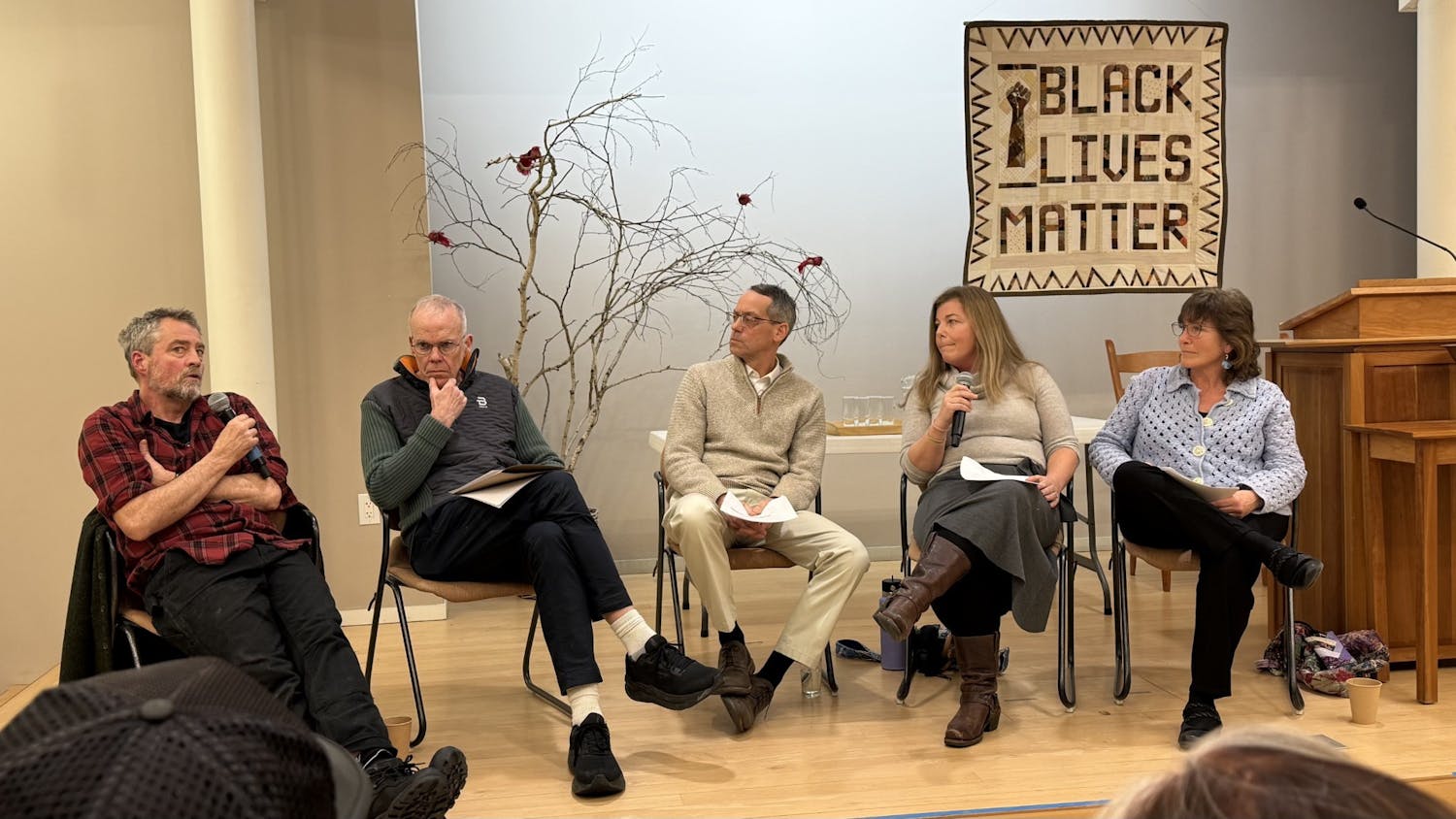Almost 50 years since the landmark Supreme Court case Roe v. Wade granted the right to abortion, pro-choice Americans continue to be on the offensive. The Court’s new conservative majority has caused many to worry that its stance on abortion will swing to the pro-life right, and promises from President Trump to restrict abortion rights have prompted Vermont lawmakers’ determination to defend the right to choose.
In a nod to the anniversary of Roe v. Wade on Jan. 22, Vermont Representatives Ann Pugh and Maxine Grad introduced bill H.57 to the Vermont Statehouse floor, a bill that would establish the fundamental right to abortion for every Vermont individual under any circumstances. Its introduction adds Vermont to a growing list of states rushing to safeguard the right to abortion, and its approximately 90 tripartisan co-sponsors make it likely to exceed the 76 votes needed to pass.
The bill was drafted in conjunction with Planned Parenthood and may be accompanied by a parallel amendment to the Vermont state Constitution in the future. However, because an amendment’s passage through the House and Senate is a much more arduous process, the House is focused on pushing H.57 through first.
According to VTDigger, Vermont House Speaker Mitzi Johnson addressed the Statehouse in support of the bill shortly after its introduction, telling her colleagues, “We need a Vermont where every Vermonter should feel free to make their personal decisions about their sexual and reproductive health care.”
[pullquote speaker="TIM ASHE" photo="" align="center" background="on" border="all" shadow="on"]Taking action ... will ensure that reproductive rights are not diminished the moment the Supreme Court rules.[/pullquote]
That’s not to say that Vermonters don’t already enjoy these rights. The bill will not actively change anything about the state’s current abortion policy, which is famously liberal. This has left some wondering why the bill is necessary and whether it is worth the Vermont legislature’s time in the first place.
Tim Ashe, President Pro Tempore of the Vermont Senate, spoke to The Campus about the two reasons why he thinks the legislation is critical anyway. He expressed concern for the Supreme Court’s newly precarious position on abortion.
“Taking action in anticipation of [federal restrictions] will ensure that reproductive rights are not diminished the moment the Supreme Court rules.” Ashe continued, “Legal rights are always stronger and less ambiguous when put in statute rather than left to the vagaries of court cases.”
Vermont has no laws that fully ensure reproductive choice, and Ashe referenced cases such as the 1989 Vermont Supreme Court decision of State v. Oliver, which set a precedent that greatly restricted the rights of a fetus in the state, but which could also be easily modified since it is not a law. Bill H.57 originally included a clause reinforcing this decision and thereby eliminating all independent rights for fertilized eggs, embryos and fetuses, though it has since been removed during revisions.
Vermont is consistently ranked as the least religious state in the U.S. and has a population that overwhelmingly supports the right to choose, according to polls conducted by Gallup and the Pew Research Center. Both such factors contribute to the tremendous support from Vermonters and legislators alike for H.57. But not everyone is so eager to get behind it. H.57’s opponents in the House have questioned the bill’s necessity and phrasing, and its opponents on the streets have vehemently protested its sweeping content.
On Jan. 26, the Vermont Right to Life, an organization led by Executive Director Mary Beerworth, held a procession of several hundred people from St. Augustine’s Church to the Vermont State Capitol in protest of the bill, during which the group prayed and demonstrated for restrictions. H.57 has also gained national attention from right-leaning news outlets including Fox News, The National Review and The Daily Caller, the latter of which ran the headline, “If You Think Virginia’s Infanticide Bill is Crazy, Wait Till You Get a Look at What Vermont is Pushing.”
These criticisms stem from the broad nature of the rights within H.57, partially because it lacks specifics regarding a fetus’s viability in the case of a third-trimester abortion. Opposition groups believe this exclusion takes the bill too far.
The bill’s proponents fight back against these objections by pointing to the fact that in Vermont, a state that comprises merely 0.2 percent of the United States’ abortions, far fewer than one percent of these procedures are completed within the third trimester, and they are often necessary for the safety of the mother.
Many agree that abortion rights are a complicated topic and not a black-and-white issue that should be either granted in entirety or restricted completely. “There are a lot of gray areas which I don’t think are acknowledged,” said Elise Park ’21. “But restricting abortion rights doesn’t stop abortion. It just makes it less safe and puts women in danger.”
These gray areas are exactly what’s stopping Governor Phil Scott, a self-described “pro-choice Republican,” from taking a firm stance on the bill. Although he originally said that he would likely support it, Scott has since expressed uncertainty thanks to pushback from Republican colleagues on some of the bill’s provisions.
Nonetheless, H.57 easily passed in the House Committee on Human Services in an 8-3 vote and will be taken up by the House Judiciary Committee this week. The House has held public hearings to debate its content, though its overwhelming support makes it likely to pass with a comfortable majority in the House and move to the state Senate. It is probable that its content will continue to evolve throughout the process, but Representatives Pugh and Grad have already succeeded in sending their message that a women’s right to choose is non-negotiable. Now they just want to set it in stone.
VT Lawmakers Vote to Protect Abortion Rights
Comments



